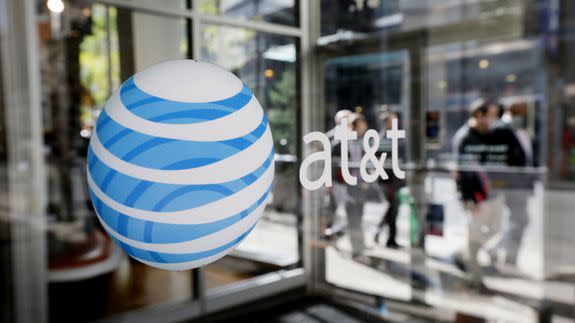How the AT&T-Time Warner deal threatens net neutrality

AT&T's $85 billion bid to acquire Time Warner is a big moment. Following the playbook of the Comcast-NBC and Verizon-AOL/Yahoo deals, it marks the point in history when service providers acquiring content companies graduated from a growing trend to simply "the norm."
If the company line on these mergers is to be believed, that's nothing but good news! Pairing content companies with distribution networks is the very definition of synergy, and it'll result in more choice, better service and savings for customers.
The #futureofvideo is mobile and the #futureofmobile is video. Time Warner + AT&T make it happen! @twxcorp https://t.co/GKx4U9TQYg
— AT&T (@ATT) October 23, 2016
Back in the real world, however, there are worrisome implications for the public. And a lot of those worries are rooted in the nebulous concept of Net Neutrality.
SEE ALSO: Watch out, AT&T: Trump says he opposes your Time Warner merger
Before you nod off at the mere mention of the term, a quick (really!) refresher: Loosely, Net Neutrality is the principle that all bits are created equal. Whether you're want to access a TV show from Netflix, a song from Spotify or an Anne Hathaway confessional from Mashable, your service provider is supposed to treat all those bits the same, and not prioritize one over the other.
Conflict of interest? What conflict of interest?
That's simple enough if you're in the business of providing internet service and not the content, but less so if you're in the business of providing both. If you're one of these mega-merged companies, it feels like a obvious thing: Why not give preferred access to HBO or DC Comics to your customers?
Under the terms of the AT&T/Time Warner merger, the winner of Game of Thrones is the unbeatable talk & text shared data plan for $10 a month
— Dave Itzkoff (@ditzkoff) October 22, 2016
Well, thanks to Net Neutrality — the primary purpose of which is to draw a line around such anticompetitive practices — that generally doesn't happen. The whole issue became dicey a couple of years ago in an epic struggle between Comcast and Netflix (among others), which culminated in the FCC's Open Internet Order of 2015, which now generally forbids the more egregious violations of Net Neutrality.
However, problems can still njnarise when the lines aren't so crisp. The last few years have seen the rise of "zero rating" services — when your wireless provider won't count the data consumed via a particular service against your data plan. T-Mobile's BingeOn, for example, lets subscribers stream video from numerous content services (including YouTube and Netflix) as long as those services opt-in to the program.
On the surface, zero-rating services appear to violate Net Neutrality, but there is good reason the FCC has explicitly not banned them. Managed properly, they may actually benefit consumers without necessarily harming competition — as long as all services are welcome, regardless of who their corporate parent is.
Still, even a zero-rating program that is democratic in principle can get clouded when the company behind it wants to play, too. In India, Facebook's Free Basics, which provided free connectivity, was open to any service, but that didn't stop the government from banning the program anyway. Facebook's intentions may have been pure, but it's hard to trust your fellow Monopoly player when he's also the banker.
At&t is buying Time Warner, RIP net neutrality and a big boost to zero-rating. Bigger is getting more bigger.
— Umair Asghar (@umair91) October 22, 2016
There have been way to many major telecom mergers lately. AT&T + Time Warner is just the most recent. So many net neutrality issues.
— Christian (@X1ANN) October 23, 2016
Very loose argument when it comes to AT&T & Time Warner synergies. With net neutrality & skeptical cost synergies, why not license content
— Ryan Lambert (@Lambies) October 22, 2016
Closer to home, the FCC met with T-Mobile and Comcast earlier this year about their zero-rating services. Comcast's Xfinity Stream TV is one of them, though the company maintains the service, which lets subscribers access TV over the internet for free, doesn't violate Net Neutrality since the live-TV aspect won't work outside of a customer's home. The company has a point — if need to be on your home Wi-Fi to benefit from the zero-data aspect, it's hardly competing with the likes of Dish's Sling TV or Sony's PlayStation Vue.
Countdown to zero
Still, if the AT&T-Time Warner deal goes through, you can bet AT&T will look for new and creative ways to bring its customers closer to properties like HBO, DC Comics and more. In fact, the first bullet point in the press release appears to emphasize this: "The world’s best premium content with the networks to deliver it to every screen, however customers want it."
Sounds fantastic, unless you're a customer on Verizon, T-Mobile or Sprint who also wants to access that content. Without clarity on zero-rating services, it's difficult to know if they'll be at a disadvantage when the next season of Game of Thrones rolls around. But the vexing uncertainty is also a glorious opportunity for the FCC to re-examine the rules around zero rating and color in the gray areas with more black and white.
Because while everyone will benefit if HBO finds its way to more customers, it'll only be good for all consumers if AT&T doesn't favor its screens over Verizon's. Enforcing Net Neutrality never felt more urgent.
